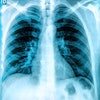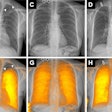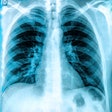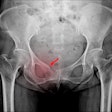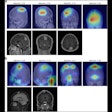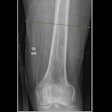Women with higher fasting plasma glucose (FPG) levels are at increased risk for myocardial infarction, especially when they have angiographically proven coronary artery disease, according to a study in the Journal of Women's Health. In addition, glycemic levels are related to angiographic coronary disease progression regardless of whether the woman is on hormone replacement therapy (HRT).
"Diabetes removes any protective effect of female sex relative to male sex with respect to (cardiovascular disease), suggesting that dysfunctional glucose metabolism is particularly harmful to women," wrote Dhananjay Vaidya, Ph.D., and colleagues. Vaidya is from Johns Hopkins University in Baltimore, while his co-investigators are from institutions in Baltimore; Montreal; Birmingham, AL; and Hartford, CT (Journal of Women's Health, March 2007, Vol. 16:2, pp. 228-234).
For this research, the group used data from the Women's Angiographic Vitamin and Estrogen (WAVE) trial, which was designed to determine if HRT or antioxidant vitamin supplements provide cardiovascular benefits. The trial, conducted from 1997 to 2002, was done at seven clinical centers in the U.S. with 423 postmenopausal women with at least one coronary stenosis (ranging from 15% to 75%) at baseline angiography.
According to the WAVE results, neither HRT nor vitamins were found to serve as protective agents in women with coronary disease (Journal of the American Medical Association, November 20, 2002, Vol. 288:19, pp. 2432-2440).
For their evaluation, Vaidya and colleagues looked at the same 423 women, 304 of whom had quantitative coronary angiography results in order to track angiographic progression. Angiograms were performed at the beginning of the WAVE trial and then a mean of 2.8 years after the study was closed. Lesion segments were selected from the best orthogonal view with the stenosis in eccentric lesions maximized. Minimum lumen diameter (MLD) was used to assess coronary disease progression.
According to Vaidya's results, the women who had a cardiovascular event were more likely to be diabetic with higher FPG levels at baseline. These same women had the lowest survival probability. Every 10 mg/dL higher FPG at baseline was associated with a decrease in MLD of 6.8 µm.
Impaired glucose fasting was associated with greater progression of coronary artery stenosis by quantitative coronary angiography, the authors stated. In addition, "the current analysis shows that the level of glycemia is related to angiographic coronary disease progression irrespective of HRT." They suggested that women with higher FPG levels should be aggressively monitored to prevent their coronary artery disease from worsening.
By Shalmali Pal
AuntMinnie.com staff writer
May 2, 2007
Related Reading
Doppler echo indicates postinfarction myocardial viability, April 19, 2007
Hip fracture risk high among older patients with diabetes, April 10, 2007
Carbohydrate intake, glycemic index, glycemic load not linked to endometrial cancer, March 27, 2007
Copyright © 2007 AuntMinnie.com



